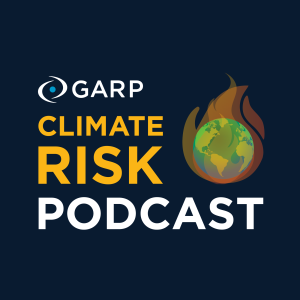
The systemic and existential nature of the risks arising from climate change requires us to engage with the problem strategically at a high level. But how can we do this when the problem is so vast and complex?
One approach is the application of systems theory to our planet in a discipline known as earth system science. This approach treats the whole globe as a single complex system, observing the interactions of sub-systems such as our atmosphere and biosphere, as well as the feedback loops that act to stabilise or destabilise the fundamental conditions for life.
This approach has already unlocked a number of key insights for understanding the causes and impacts of climate change and is a vitally important perspective for anyone wanting to better understand complex and interconnected nature of the risks from climate change.
During this episode, you will hear from Tim Lenton, a leading academic in the field of earth system science and co-author of the seminal and award-winning paper on climatic tipping points and the non-linearity of climate change (https://www.pnas.org/content/105/6/1786).
In addition to discussing systems theory and a number of critical climatic tipping points, Tim also provides insights into the various emissions pathways that lie ahead of us and shines a light on some of the often underappreciated social impacts of climate change such as near term mass migration.
If you have any questions, thoughts or feedback regarding this podcast series, we would love to hear from you. Please email us at: climateriskpodcast@garp.com
Tim Lenton – Professor of Climate Change and Earth System Science at the University of Exeter
Tim Lenton is Director of the Global Systems Institute and Chair in Climate Change and Earth System Science at the University of Exeter.
Tim has over 20 years of research experience in studying the Earth as a system and developing and using models to understand its behaviour.
He has achieved many accolades, including the Times Higher Education Award for Research Project of the Year 2008 and the Royal Society Wolfson Research Merit Award, 2013.
He is a Turing Fellow and a Fellow of the Linnean Society, the Geological Society and the Society of Biology.
More Episodes
 2021-01-14
2021-01-14
 2020-07-16
2020-07-16
Create your
podcast in
minutes
- Full-featured podcast site
- Unlimited storage and bandwidth
- Comprehensive podcast stats
- Distribute to Apple Podcasts, Spotify, and more
- Make money with your podcast
It is Free
- Privacy Policy
- Cookie Policy
- Terms of Use
- Consent Preferences
- Copyright © 2015-2024 Podbean.com






